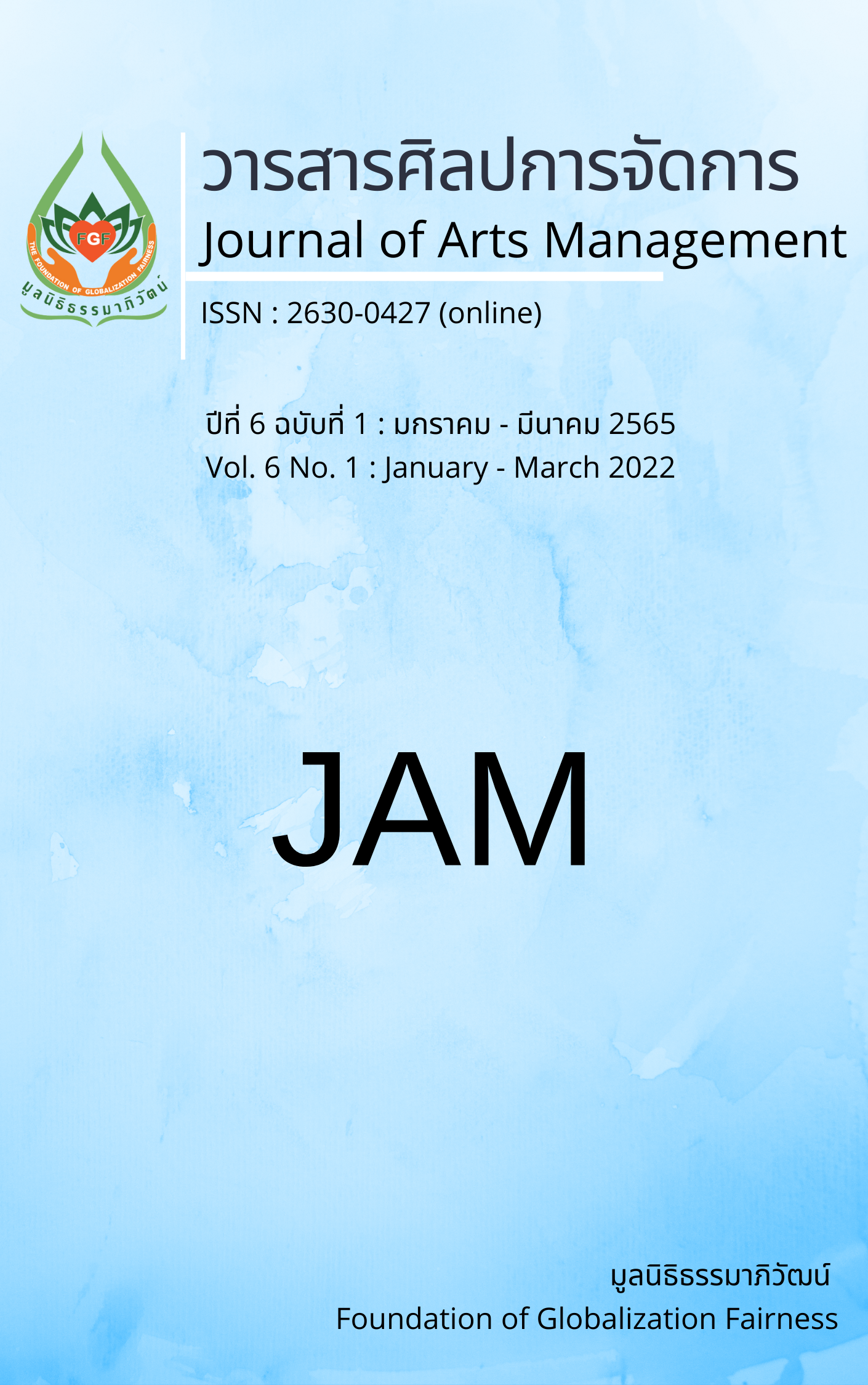The Innovation Management Model that Influences the Driving of the Environmental Consulting Business in Thailand
Main Article Content
Abstract
This article aimed (1) to study the innovation factors influencing the success of the environmental consultancy business; and (2) to analyze confirmatory factor analysis (CFA) of innovation management affecting the success of the environmental consultancy business. The sample consisted of 266 licensed environmental consultants. They were selected by questionnaires and in-depth interviews as the instruments for collecting data such as percentage, mean, standard deviation, and structural equation model. Analysis of data by descriptive statistics and content analysis. The research results were found as follows:
1) adding value to the quality of service by using service innovation, process innovation, and management innovation to improve business operations. This can increase the efficiency of service quality and meet the purpose of the service recipients.
2) The factors that are vital to driving the environmental consulting business are (1) digital innovation, (2) intelligence innovation business system, and (3) artificial intelligence innovation.
3) The innovation management guidelines for environmental consulting appropriate must be planned accurately, appropriately, valued, and maximized benefits by using the core activities of management (POLC) as a guideline to achieve the objective of the organization.
Article Details

This work is licensed under a Creative Commons Attribution-NonCommercial-NoDerivatives 4.0 International License.
Views and opinions appearing in articles in the Journal of Arts of Management It is the responsibility of the author of the article. and does not constitute the view and responsibility of the editorial team I agree that the article is copyright of the Arts and Management Journal.
References
Ahalt, S., & Kelly, K. (2013). The big data talent gap. UNC Kenan-Flagler Business School. https://renci.org/wp-content/uploads/2013/08/The-Big-Data-Talent-Gap-White-Paper1.pdf
Becerra-Fernandez, I., & Sabherwal, R. (2015). Knowledge Management Systems and Processes (2nd ed.). Routledge.
Collins, G. (2018). Claude E. Shannon: Founder of Information Theory. Computer Architecture. The University of Chicago.
Cowart, K. O., Fox, G. L., & Wilson, A. E. (2008). A structural look at consumer innovativeness and self-congruence in new product purchases. Psychology & Marketing, 25(12), 1111-1130.
Daft, L. R. (2006). Organization theory & design (7th ed.). South-Western Publishing.
DeCenzo, D. A., & Robbins, S. P. (2005). Fundamentals of human resource management (8th ed.). Wiley.
Gomez-Mejia, L. R., Balkin, D. B., Cardy, R. L., & Brouwer, D. (2005). Management: People, performance. (2nd ed.) Pearson education.
Maly, T. (2015). How digital filmmakers produced a gorgeous sci-fi movie on a Kickstarter budget. Prentice-Hall.
Mannino, M.V. (2007). Database design, application development and administration. McGraw-Hill.
Meyer, B., Choppy, C., Staunstrup, J., & Leeuwen, J. (2009). Research evaluation for computer science. Communications of the ACM, 25(4), 31–34.
Nantasri, C., & Manmart, L. (2013). Current Situation of Knowledge Management for Consulting Company in Thailand. KKU Research Journal (Graduate Studies), 13(3), 27-41.
Skarlicki, D. P., & Rupp, D. E. (2010). Dual processing and organizational justice: The role of rational versus experiential processing in third-party reactions to workplace mistreatment. Journal of Applied Psychology, 95(5), 944–952. https://doi.org/10.1037/a0020468
Tedre, M. (2011). Computing as a Science: A Survey of Competing Viewpoints. Minds and Machines, 21(3), 361–387. https://doi.org/10.1007/s11023-011-9240-4
Rakthai, T., & Aujirapongpan, S. (2017). Open Innovation Systems: Success in Universities’ Innovation Development. Songklanakarin Journal of Management Sciences, 34(2), 135-160.
Pulpetch, T. (2020). Creation of human resource management and innovation management systems that predict job success. Social Science Journal of Prachachuen Research Network; SSJPRN, 1(3), 51-61.
Yamane, T. (1973). Statistics: An introductory analysis (3rd ed.). Harper and Row.


